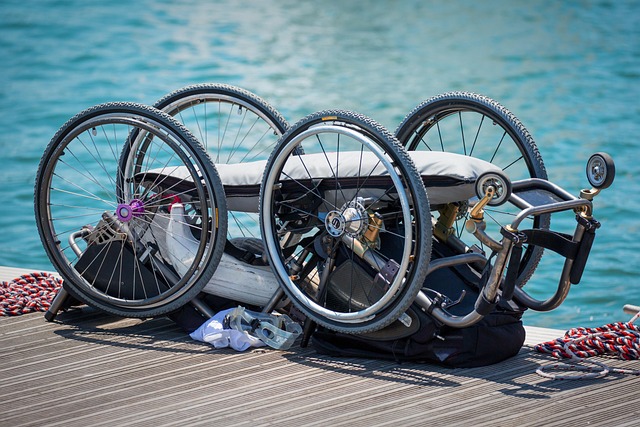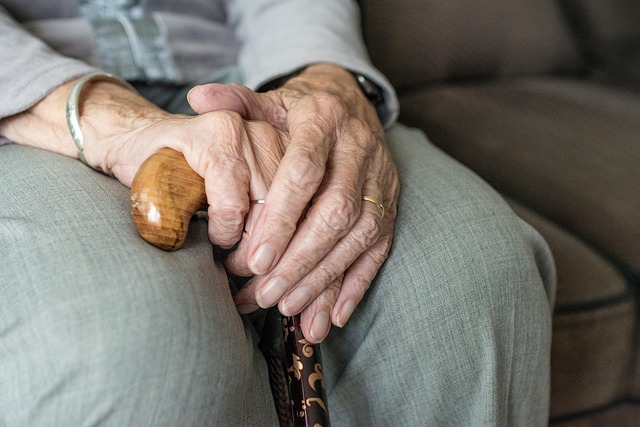Category: Legal Support for Oregon Child Welfare Cases in Eugene
Legal Support for Oregon Child Welfare Cases in Eugene: A Comprehensive Analysis
Introduction
In the intricate realm of child welfare, ensuring the rights and well-being of vulnerable children is paramount. Oregon, with its progressive legal framework, has implemented a robust system to support these cases, particularly in the city of Eugene. This article delves into the intricacies of ‘Legal Support for Oregon Child Welfare Cases in Eugene’, exploring its multifaceted aspects, historical evolution, global impact, and future prospects. By examining these elements, we aim to shed light on how this support system contributes to the overall success of child welfare initiatives and highlights best practices that can inspire similar efforts worldwide.
Understanding Legal Support for Oregon Child Welfare Cases in Eugene
Definition and Core Components
‘Legal Support for Oregon Child Welfare Cases in Eugene’ refers to a comprehensive network of legal services designed to safeguard the interests of children involved in welfare proceedings within the city limits of Eugene, Oregon. It encompasses a range of legal assistance, including representation, advice, and advocacy for children, parents, and guardians. The core components include:
- Legal Representation: Providing qualified attorneys who specialize in child welfare law to represent the best interests of children in court proceedings.
- Guardian Ad Litem (GAL) Services: Assigning neutral third parties to act as advocates for the child, ensuring their voice is heard and their needs are represented.
- Legal Advice and Education: Offering guidance to parents and guardians on legal rights, responsibilities, and options available during welfare cases.
- Court Support: Assisting in navigating complex court processes, preparing legal documents, and representing clients in hearings.
- Community Resources Coordination: Collaborating with local agencies to connect families with necessary services, such as housing, healthcare, and social support.
Historical Context and Evolution
The concept of legal support for child welfare cases has evolved over time, reflecting societal changes and advancements in understanding childhood development. In Oregon, the system’s roots can be traced back to the early 20th century when state laws began to recognize the rights of children and the need for specialized legal protection. The modern approach, however, gained momentum in the late 1970s and 1980s with the advent of progressive child welfare policies and a focus on family preservation.
The Eugene community played a pivotal role in shaping this support system. Local advocates and legal professionals recognized the unique challenges faced by families involved in child welfare cases, leading to the establishment of specialized legal services. In 1995, the Lane County Legal Aid Service (LCLAS) launched a dedicated Child Welfare Unit, marking a significant milestone in the development of legal support for these cases in Eugene.
Significance and Broader Landscape
Legal support for Oregon child welfare cases is vital for several reasons:
- Protection of Children’s Rights: Ensuring that children involved in welfare proceedings have legal representation and advocacy safeguards their rights and best interests.
- Fairness and Equality: Providing legal aid levels the playing field, ensuring all parties, regardless of income or resources, have access to quality legal representation.
- Improved Case Outcomes: Research indicates that children with legal representation are more likely to have positive case outcomes, including successful reunifications with their families.
- Community Collaboration: Legal support systems foster partnerships between legal aid organizations, government agencies, and community groups, strengthening the overall child welfare network.
Global Impact and Trends
International Influence
‘Legal Support for Oregon Child Welfare Cases in Eugene’ has garnered international recognition as a model for effective legal assistance in child protection. Several countries have adopted elements of this system to enhance their own legal frameworks:
- Australia: The Australian state of Victoria implemented a ‘Guardianship and Legal Services’ program inspired by Oregon’s model, focusing on providing independent legal representation for children.
- Canada: Some provinces, like British Columbia, have incorporated similar GAL services, ensuring children’s voices are heard in court proceedings.
- United Kingdom: The UK’s Legal Aid system has integrated child welfare law expertise to better support families involved in care proceedings.
Key Trends Shaping the Trajectory
Several global trends are influencing the development and improvement of legal support for child welfare cases:
- Child-Centered Approaches: A growing emphasis on viewing children as rights-bearing individuals with unique needs, preferences, and voices is shaping legal strategies and practices.
- Family Preservation and Support: There is a rising trend to preserve families and provide necessary support rather than solely focusing on removal. Legal aid plays a crucial role in facilitating these interventions.
- Technological Integration: The adoption of technology, such as online case management systems and digital evidence presentation, streamlines legal processes and improves accessibility.
- International Collaboration: Organizations like the International Association of Child Welfare Law (IACWL) facilitate knowledge sharing and best practices among nations, fostering global cooperation.
Economic Considerations
Market Dynamics and Investment Patterns
The demand for legal services within the child welfare sector has led to the development of specialized legal aid organizations and private practice areas focused on family law. In Oregon, this has resulted in:
- Legal Aid Organizations: Non-profit legal aid providers, such as LCLAS, receive funding from government grants, donations, and client fees to offer services to low-income families.
- Private Law Firms: Many firms have dedicated family law departments, attracting clients through specialized expertise and successful case outcomes.
- Market Growth: The increasing complexity of child welfare cases and rising demand for legal representation have contributed to the growth of this market segment.
Role in Economic Systems
Legal support for child welfare cases contributes to economic systems by:
- Promoting Social Stability: Effective legal aid reduces the number of children in care, decreasing the economic burden on governments and society.
- Empowering Families: By providing legal representation, families can navigate complex systems, maintain custody, and contribute to the local economy as active participants.
- Attracting Investment: A strong legal framework for child welfare attracts investors and organizations committed to social impact and community development.
Technological Advancements
Impact on Legal Support
Technological innovations have significantly transformed legal support for Oregon child welfare cases:
- Online Case Management: Digital platforms enable efficient case tracking, document management, and communication between lawyers, courts, and clients.
- Digital Evidence Presentation: Attorneys can now use advanced technology to present evidence, including photos, videos, and documents, enhancing argumentation and accessibility.
- Telelaw and Remote Services: Video conferencing allows for remote legal consultations and court appearances, increasing access to justice for rural and low-income families.
- Data Analytics: Advanced data analytics assists in identifying trends, evaluating case outcomes, and improving legal strategies.
Future Potential
The future of technology in legal support holds immense potential:
- Artificial Intelligence (AI): AI-driven tools can automate routine tasks, provide legal research assistance, and predict potential outcomes, increasing efficiency.
- Blockchain for Record Keeping: Secure and transparent record-keeping using blockchain technology ensures the integrity of legal documents and case histories.
- Virtual Reality (VR) for Training: VR simulations can train legal professionals in complex scenarios, enhancing their preparation and empathy.
- Mobile Applications: Dedicated apps can provide parents and guardians with accessible information and resources regarding their rights and welfare proceedings.
Policy and Regulation
Key Policies and Legislative Frameworks
The legal support system for Oregon child welfare cases operates within a robust policy and regulatory framework:
- Oregon Revised Statutes (ORS): The state’s laws outline the rights of children, parents, and guardians, as well as the responsibilities of various agencies involved in child welfare.
- Child Welfare Code: This code establishes procedures for investigation, assessment, and court interventions, ensuring a structured approach to case management.
- Legal Aid Laws: Oregon has specific legislation supporting legal aid organizations, guaranteeing their independence and funding.
- Guardianship and Conservatorship Acts: These laws govern the appointment of guardians and conservators, crucial aspects of legal representation in child welfare cases.
Influence on Development and Implementation
The policies and regulations have a profound impact on the practical implementation of legal support:
- Standardized Procedures: Clear guidelines ensure consistent and fair treatment for all families involved in child welfare proceedings.
- Accountability and Transparency: Regulatory frameworks hold agencies and professionals accountable, promoting ethical practices and public trust.
- Collaboration Between Agencies: Policies encouraging inter-agency collaboration facilitate information sharing and coordinated legal support.
- Continuous Improvement: Regular policy reviews and updates ensure the system remains responsive to changing societal needs and legal standards.
Challenges and Criticisms
Main Challenges Faced
Despite its strengths, ‘Legal Support for Oregon Child Welfare Cases in Eugene’ faces several challenges:
- Funding Shortages: Limited funding can lead to reduced staff, longer wait times, and inability to accept all cases, impacting access to legal aid.
- Complex Case Loads: The increasing complexity of child welfare cases, often involving domestic violence or substance abuse, presents unique legal and emotional challenges.
- Geographical Disparities: Rural areas within Oregon may have limited access to legal aid services due to a lack of legal professionals and resources.
- Cultural Sensitivity: Navigating cultural differences and providing culturally competent legal services is essential but can be challenging in a diverse community.
Proposed Solutions and Strategies
Addressing these challenges requires a multi-faceted approach:
- Diversify Funding Sources: Explore public-private partnerships, grants from foundations focused on children’s rights, and individual donations to ensure sustainable funding.
- Specialized Training: Implement comprehensive training programs for legal professionals to enhance their skills in handling complex cases, including trauma-informed care.
- Geographical Outreach: Establish satellite offices or mobile legal clinics in rural areas to improve access to services.
- Community Engagement: Collaborate with cultural organizations and community leaders to develop culturally sensitive legal practices and outreach initiatives.
Case Studies: Successful Applications and Lessons Learned
Case Study 1: The Jordan Case
In a highly publicized case, the Lane County Legal Aid Service successfully represented a young mother, Sarah Jordan, in a custody battle against her ex-partner. Despite significant obstacles, including domestic violence and substance abuse issues, the legal aid team provided unwavering support. Through thorough legal research and strategic advocacy, they demonstrated that Sarah’s parental rights should not be terminated based solely on her past struggles. The case resulted in a positive outcome, with Sarah regaining custody of her child and receiving necessary support services.
Lessons Learned:
- Comprehensive legal representation can challenge harmful stereotypes and ensure parents’ rights are protected.
- Collaboration between legal aid organizations, social service agencies, and community advocates is crucial for successful outcomes.
- Long-term support services should be offered to help families overcome challenges and maintain stability.
Case Study 2: Rural Community Outreach
The Eugene Legal Aid Society launched an initiative to provide legal assistance to low-income families in a rural Oregon county with limited access to legal aid services. They established a mobile legal clinic, traveling to remote communities once a month to offer free consultations and representation. This approach successfully increased access to justice for families who previously had no legal support.
Lessons Learned:
- Geographical outreach programs can bridge the gap in legal aid availability, especially in rural areas.
- Community partnerships are essential for understanding local needs and tailoring legal services accordingly.
- Mobile legal clinics demonstrate flexibility and accessibility, catering to diverse client populations.
Future Prospects: Growth Areas and Emerging Trends
Potential Growth Areas
The future of ‘Legal Support for Oregon Child Welfare Cases in Eugene’ holds promising growth areas:
- Specialized Legal Services: Expanding specialized services to address emerging issues, such as the legal implications of technology in child welfare monitoring.
- International Collaboration: Building upon existing partnerships and networks to share best practices globally, contributing to worldwide advancements.
- Data-Driven Decision Making: Leveraging data analytics to identify at-risk families and develop targeted interventions, improving case outcomes.
- Community-Based Initiatives: Encouraging community-led projects that involve parents and guardians in legal education and support programs.
Emerging Trends
Several emerging trends will shape the landscape:
- Prevention and Early Intervention: Shifting focus towards prevention by providing early legal advice and support to families at risk of child welfare involvement.
- Technology Integration: Advancing digital tools and platforms to streamline legal processes, improve client communication, and enhance case management.
- Cultural Competency Training: Mandatory training for legal professionals to ensure culturally sensitive practices and effective representation across diverse communities.
- Mental Health Awareness: Integrating mental health support services within legal aid organizations to address the trauma and emotional challenges faced by families involved in child welfare cases.
Conclusion: Illuminating Best Practices
‘Legal Support for Oregon Child Welfare Cases in Eugene’ stands as a testament to what is achievable when legal aid systems are robust, well-regulated, and driven by a commitment to social justice. The comprehensive approach, combining legal representation, community collaboration, and technological integration, has led to positive outcomes for children and families.
This article has provided an in-depth exploration of various aspects, from historical context to future prospects, highlighting the system’s resilience and adaptability. By learning from successful cases and addressing challenges head-on, other regions can emulate and adapt these practices to build effective legal support systems for child welfare cases. As the world navigates the complexities of modern family dynamics, such models will remain invaluable in ensuring the best interests of children are protected.
FAQ Section: Addressing Common Concerns
Q: How do I know if I qualify for legal aid services?
A: Legal aid organizations assess eligibility based on income and other factors. You can contact a local legal aid office or visit their website to determine your qualifications.
Q: What types of cases does legal support handle in child welfare?
A: Legal support covers various aspects, including representation in court proceedings, advice on parental rights, guardianship appointments, and navigating complex family law issues related to child welfare.
Q: Can I get legal help if my case is not in Oregon?
A: While this article focuses specifically on Oregon, many principles and practices can be applied globally. Contacting local or national legal aid organizations in your region may offer similar services or guidance.
Q: How does technology improve the legal process for child welfare cases?
A: Technology streamlines case management, enhances evidence presentation, facilitates remote access to justice, and enables data-driven decision making, ultimately improving efficiency and accessibility.
Legal Support for Oregon Child Welfare: Rights and Resources
Navigating Oregon Child Welfare Legal Aid Services
Navigating Oregon Child Welfare Legal Resources for Parents
Understanding Legal Support for Oregon Child Welfare Cases

The Oregon Child Welfare System relies on a collaborative network of agencies to protect at-risk chi…….
Navigating Legal Support: Oregon Child Welfare Guide for Parents
Navigating Oregon Child Welfare: Legal Support for Parents
Legal Support for Oregon Families in Child Welfare Cases
Oregon Child Welfare: Navigating Legal Support Services for Families
Navigating Legal Support for Oregon Child Welfare Cases

In Oregon child welfare cases, navigating legal support is vital for parents to assert their specifi…….







